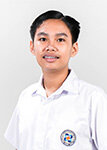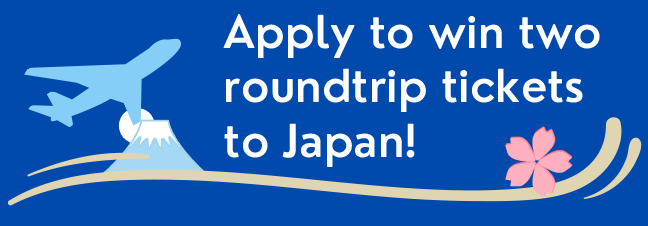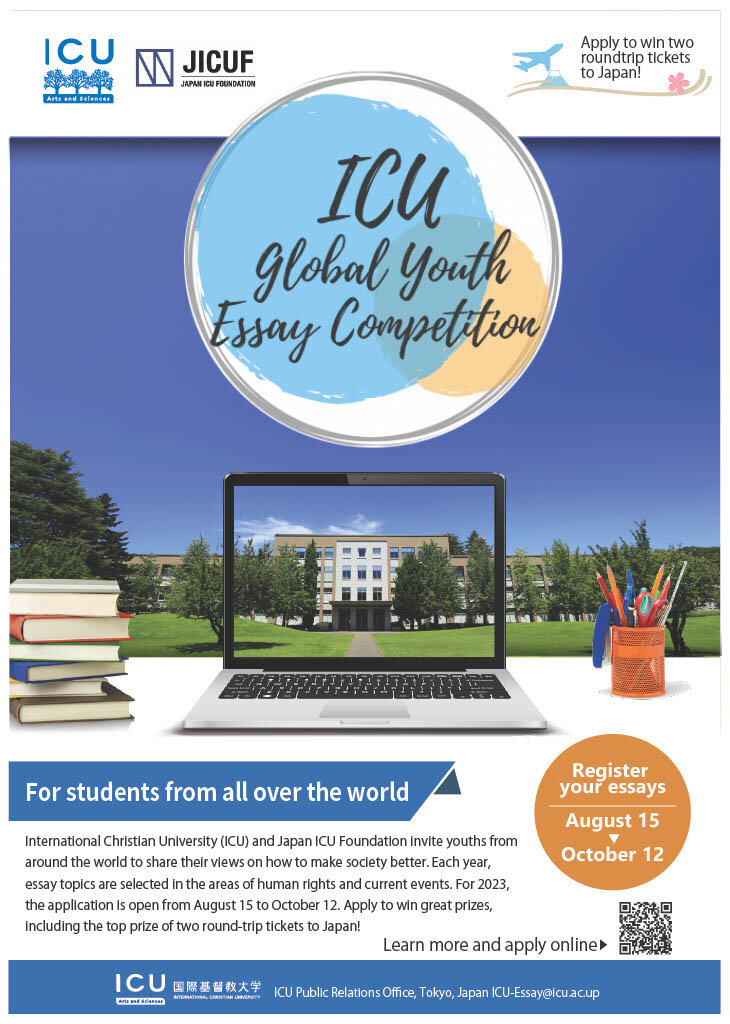NEWS
ICU Global Youth Essay Competition 2023 Results
Update: April 3, 2024
December 20, 2023
International Christian University (ICU) and Japan ICU Foundation are pleased to announce the winners of the ICU Global Youth Essay Competition 2023.
This competition invited youths from around the world to share their views on how to make society better.
We would like to extend our gratitude for all of those who applied last year. In total, we had 151 eligible applications from 37 countries and regions.
Top Prize: Deeksha Ravi (from Home School in India)
Essay Topic: Right to Work
Essay Title: "My Vision to Make the Right to Work a Reality for All"
The writer will receive two round-trip airline tickets to Tokyo in summer 2024, or 100,000JPY if one is unable to travel, and a book related to the World Declaration of Human Rights translated by ICU students.
Essay title: "My Vision to Make the Right to Work a Reality for All"
As an ambitious teenager, work is a central part in my life. I view it not just as a necessity but as a gift to humanity. This is why I deeply resonated with point 1 of Article 23 in the UDHR: "Everyone has the right to work, to free choice of employment, to just and favorable conditions of work, and to protection against unemployment." Throughout evolution, work has been the thread that weaves human progress. In the 21st century, we must wield the power of work to solve the unique problems our world faces. To secure people's right to work, I propose a three-part approach: creating opportunities, investing in practical education and continuous learning, and empowering the marginalized.
Here is why the first part is of critical importance. I have had amazing opportunities to develop my skills and contribute to society, but many individuals lack these opportunities despite having the skills and the desire to work. This challenge is prevalent in developing countries where, whether it's caring for the sick, feeding the hungry, or building essential infrastructure, there is an urgent demand for human capital, but few opportunities for those who are ready to meet this demand. We must bridge this gap by matching job seekers with the needs of their communities.
We should also create supportive ecosystems for entrepreneurship. I believe that initiatives aimed at micro-lending and skills development can foster self-employment, which is necessary in regions with limited formal job opportunities.
Next we must focus our energies on useful education. Traditional education often oversells the promise of a successful career. In reality, many welleducated individuals find themselves without meaningful work. Take, for instance, the millions of technical degree holders in India who are underemployed. They've acquired knowledge, but it remains untapped to address real-world challenges. As a homeschooler, I've been fortunate to engage in diverse, application-based learning experiences. Creating business plans, designing air and water purifiers, and contributing my design skills to government bodies have allowed me to apply knowledge to practical problems. This type of learning is critical to enable people to exercise their right to work.
We must also realize that one-time learning will not suffice. 21st century workers need to constantly update their skills and knowledge to be of value to their employers and society at large.
Finally, we must invest in community empowerment. We cannot discriminate against women, religious minorities, people with disabilities, and others who face unequal treatment at workplaces. I grew up in a liberal home but a patriarchal society. My mother is the only woman in my known family, of a thousand members, to work and be an entrepreneur at that. Many women in my community are employable college graduates, but they are prevented from working, because their families bind them to housework and child care. The female housekeeper in my home is not financially or socially privileged, but her family gives her the privilege to work, allowing her to uplift her daughters through better education and employment opportunities then she had. I intend to break the stereotype of the nonworking woman by first becoming a strong role model myself, then providing the training and support to other women, young and old, so that they too can achieve their dreams.
My life is guided by the principle of "leaving the world better than you found it." My dreams are diverse and unconventional, ranging from nurturing people's potential through project-based learning to inventing a recycling machine that transforms any kind of waste into eco-friendly materials. Each of them was born from my commitment to work for a more equitable and sustainable world.
The right to work is a cornerstone of a just and thriving society. I believe that by embracing this perspective, we can build a brighter future where everyone has the opportunity to work, learn, and make a positive impact on the world.
*All rights reserved. No part of this essay may be reproduced in any form or by any means without the prior permission of the writer.
Second Prize: Carlos Manuel Eusoya (from Philippine Science High School - Western Visayas Campus in the Philippines)
 Essay Topic: Technology
Essay Topic: Technology
Essay Title: "A Touch of Humanity"
The writer will receive 50,000JPY gift card and a book related to the World Declaration of Human Rights translated by ICU students.
Essay title: "A Touch of Humanity"
Sometimes, algorithms fail and machines malfunction. All we need is a touch of humanity.
This lesson from our Computer Science teacher still resonates with me. I never thought about this often, but conversing with a local nurse made me rethink: In an era where technology is evolving, where does humanity's future lie?
Eduardo sat at the hospital's walkway; his ears sore from the mask that looped in his face. He's a nurse at a hospital in our small town of San Miguel. When COVID-19 cases reached a frightening peak last 2020, Eduardo endured twenty-hour shifts to save as many lives as he could.
"The future has no place for me," he uttered. "Hospital owners are considering these AI tools for diagnosis and patient care. We might get laid off soon. Even worse, nurses like me are being distrusted."
Eduardo showed me a Facebook video of a conspiracy theorist saying that nurses invented COVID-19 and other diseases to steal money from patients. The video garnered 200,000 likes, enough traction to sow distrust and skepticism. This phenomenon, known as misinformation, is not just happening in my town; it's affecting 86% of Internet users globally (Simpson, 2019). While Internet and social media allow faster information transmission, these platforms also became breeding sites for hoax stories that deceive people and influence patients to take fake treatments and discredit professionals.
But it's not just online misinformation that's targeting medical workers. Another looming threat that's slowly dismantling the healthcare industry is Artificial Intelligence (AI). Even if technology helps augment efficiency by automating tasks, recent reports estimate that 300 million workers will be displaced by AI, and millions more will receive lower wages once AI enters the workplace (Vallance, 2023).
Indeed, technology will forever change the way we live. But in the process, it has established a divide-and-conquer approach to disempower the human interest. Technology divides us by polarizing our platforms through fake news, and the moment that distrust is sown, AI comes in to conquer and reap. Little by little, we lose our belief in each other. We lose our trust in our innate capabilities as talented humans, turning to robotic machines to perform our tasks.
But I believe that there's a way to restore the lost sense of humanity that unites our collective society. First, we need to educate Internet users how to distinguish between fact and fiction. This may be done through digital literacy training. As for the rising use of AI, awareness campaigns and technology capacity-building sessions will allow workers like Eduardo to familiarize themselves on how to integrate AI in their professions without having the tools replace them completely.
As a youth aspiring to be a doctor, I also make an effort to increase trust in the human workforce while mitigating the negative effects of technology, particularly in the medical strand. I have led journalism publications whose fact-check initiatives allow students and youth to report fake news and verify content online. I also organize trainings that teach "netizens" on how to navigate social media with critical, unbiased thinking. Lastly, as a science scholar, I have been a part of several "responsible AI" projects. I've integrated artificial intelligence in my research to find novel medicine against bacterial diseases, proving that AI can work hand-in-hand with human intelligence, and should not be an impediment to our freedom to think and innovate creatively. In the long run, we can widen these initiatives -- fact-checking, literacy training, and safe AI integration -- to secure a future where both humans and technology prosper together.
Because the bitter truth is... algorithms fail and machines malfunction. No AI could care for its patients the way Eduardo does as a nurse, and no application can discredit the efforts of doctors, teachers, researchers, and workers who help us every day. These people all exhibit a touch of humanity -- a value that we must preserve wherever the future takes us next.
Bibliography- Simpson, S. (2019, June 11). Fake News: A Global Epidemic Vast Majority (86%) of Online Global Citizens Have Been Exposed to it. Ipsos. https://www.ipsos.com/en-us/news-polls/cigi-fake-news-global-epidemic.
- Vallance, C. (2023, March 28). AI could replace equivalent of 300 million jobs - report. BBC News. https://www.bbc.com/news/technology- 65102150.
*All rights reserved. No part of this essay may be reproduced in any form or by any means without the prior permission of the writer.
Third Prizes:
Nine winners were named for the third prize. The writers below will receive a book related to the World Declaration of Human Rights translated by ICU students.
Amelia Pace (from Oak Knoll School of the Holy Child in US) Technology "A Neglected Generation: The Downside of Advanced Technology"
Mei Leilani Kambara (Kalani High School in US) Right to Work "A Field Trip To The Past"
Rafida Naqiyatur Rahmah (Darul Quran Integrated High School in Indonesia) Right to Work "Carpe Diem"
Najwan Fadhil Ibadurrahman (from MAN 2 Kota Malang in Indonesia) Technology "Bridging The Gap"
Temitope Victoria Soneye (from Remo Secondary School in Nigeria) Technology "Overdependence on Technology"
Khushrooh Kasi (from Garrison Academy, Quetta in Pakistan) Right to Work "Justice in Our Workforce"
Akemi Shih-Evans (from Nambour State College in Australia) Technology "Social media: the engine of a fast fashion industry disadvantaging millions of girls worldwide"
Hanifah Yumna Nabilah (from SMA Insan Cendekia Al Kausar in Indonesia) Technology "The Artificial Intelligence's Moral Dilemma"
Hannah Elizabeth Helm (from Stroudsburg High School in US) Right to Work "Sidewalk of Separation: Two Sides Of America"
Special Prize for non-native English writer:
There was no essay that qualified for this award this year.
Below was the application guideline for 2023
International Christian University (ICU) and Japan ICU Foundation invite youths from around the world to share their views on how to make society better. Each year, essay topics are selected in the areas of human rights and current events. For 2023, the application is open from August 15 to October 12. Apply to win great prizes, including the top prize of two round-trip tickets to Japan!
Prizes
Top Prize ( 1 winner ): Two round-trip airline tickets to Tokyo in the summer of 2024 for the winner and a guarantor. A visit to ICU will be incorporated into the trip. In lieu of the airline tickets, the top prize winner has the option of receiving 100,000 yen.
Second Prize ( 1 winner ): 50,000 yen gift card
Third Prize ( 10 winners ): A book translated by ICU students Illustrated Universal Declaration of Human Rights in French, English, and Japanese
Special Prize (1 winner) for those who have not been educated in English for more than 1 year: same as 3rd prize


| Application Open Date: | Tuesday, August 15, 2023, 10:00 JST |
|---|---|
| Application Close Date: | Thursday, October 12, 2023, 23:59 JST |
| Announcement of Winners: | 11:00 AM, Wednesday, December 20, 2023 (JST). Results will be announced on the ICU website and by email. |
| Participation fee: | Free |
Way of Application:
All essays must be submitted online through Submittable platform. Click the following to sign up, read the instructions, and apply! 2023 Essay questions Essays must focus on one of this year's topics. Select one of the following questions from the areas of human rights and current events. There are no right answers to these questions; we are not looking for essays that propose the "correct" solutions that already exist. We want to learn about YOUR original ideas. As you write, start by reflecting on your own experience, think about what the problem is, and then write your own opinion. Essays must abide by the ICU Policy on Academic Integrity and ICU's Perspective on the Use of Generative AI by Students. Language: Essays must be written in English. Word Limit: No more than 650 words, excluding essay title and bibliography Essay Title: Essays must have a title. Please create a title that best describes the essence of your essay. The title does not count towards the word limit. Eligibility: Applicants must be aged 14-18 as of October 12, 2023 (inclusive) and must currently reside outside of Japan. University/college students as of October 12, 2023 are ineligible to apply. How are essays evaluated? A group of judges from ICU and the Japan ICU Foundation will evaluate all essays using the following factors: All essays will be checked for plagiarism as well as AI generators checker. An essay will be disqualified if: Please Note Past Winners International Christian University is a leading private university characterized by its bilingual (Japanese/English) liberal arts education in Tokyo, Japan. From its establishment in 1953, ICU has aimed to educate students in an international setting to be stewards of a just and peaceful world. Visit Website. The Japan ICU Foundation is an independent educational foundation based in New York City. Its mission is to work with International Christian University to nurture global citizens who contribute to the well-being of humanity. Visit Website. ICU Public Relations Office An essay should be submitted during August 15 - October 12. Please prepare by writing in another document. An essay should be submitted online from the "Apply Here" button on this website. If you are 18 years old on October 12, 2023, the deadline for application, you are eligible to apply. Please also note that if you will be attending college/university/higher education by October 12, you are not eligible to apply.
Although this essay competition is not aimed to look at your research skills, you must cite the source of any quotations, ideas, thoughts, or words in your essay that are not your own. This can be done by including in-text citations (which count toward the 650-word limit). Additionally, you may include full citations (which DO NOT count toward the word limit) in the Bibliography text box. MLA and APA styles are recommended. Failure to identify non-original material will result in disqualification.
The winners' full name, essay, title, school name, and location will be shared on the Global Youth Essay Competition website. Other information may be displayed upon receiving consent from winners and their guarantors.
Visit the website below to read the winners' essays.About the Organizers
ICU Website
JICUF WebsiteContact
TEL: +81-422-33-3058
EMAIL: ICU-Essay@icu.ac.jpFAQs
After you sign up for Submittable, the application page will appear. In a designated text box, you can type in your essay directly, or write in another document and paste it.

